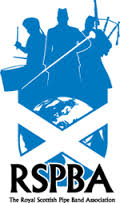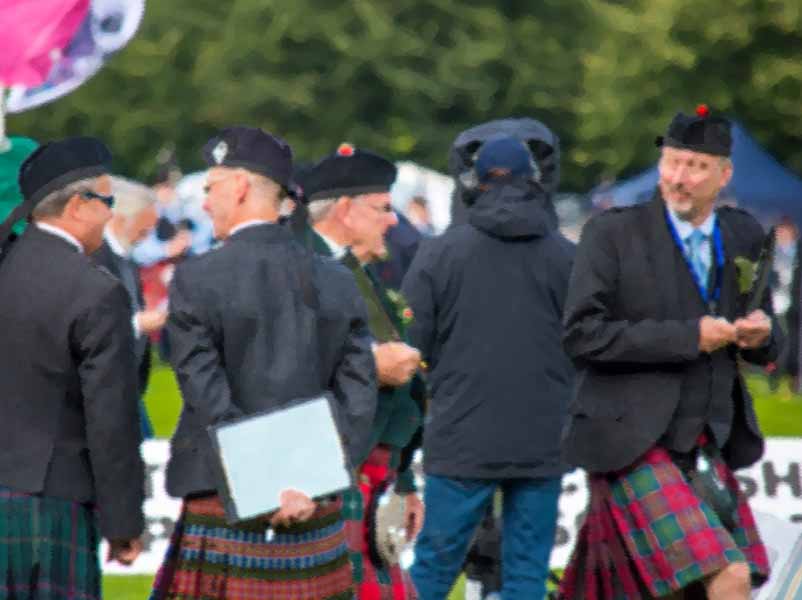New leaders for RSPBA elected and appointed at annual general meeting; all motions passed
 The Royal Scottish Pipe Band Association membership brought in several new leaders for the organization at its ninety-third annual general meeting, held in Glasgow on March 9th.
The Royal Scottish Pipe Band Association membership brought in several new leaders for the organization at its ninety-third annual general meeting, held in Glasgow on March 9th.
Robert Niven was voted in as the association’s new chairman, taking over from incumbent Kevin Reilly. Niven serves on the board of directors for the North of Scotland branch and will now be responsible for setting the agenda for the organization, formulating committees, and managing board meetings.
The new president is Major-General David McDowall, a retired British Army officer and piper from Stranraer, Scotland. The highly decorated general was head of the army in Scotland, Northern Ireland and the North of England and served as Governor of Edinburgh Castle until his retirement in June 2009. On his last day in the military, McDowall performed in the coveted Lone Piper roles at the Edinburgh Military Tattoo.
He takes over from the long-serving George Ussher, who revealed his intention to retire from the position in 2023. The RSPBA’s board of directors, not the members at large, collectively decides who will be president. Reilly had reportedly been put forward as a candidate for the presidency.
The new vice-chair is Stewart Orr, who takes the position following the untimely passing of long-serving vice-chair John Hughes. A primary function of the vice-chair is to oversee the organization and delivery of competitions.
The atmosphere at the meeting was reportedly mainly congenial, including kudos to management for delivering all five major championships for 2024, which is a central mandate of the organization.
There were reportedly pointed calls for the association to conduct better forward planning so that major championships and other events would be more secure in future years.
Robert Mathieson, recently appointed chair of the association’s powerful Adjudicators’ Panel Management Board, reported on developments, including the slate of new APMB members and projects such as a new training initiative revealed last week. Mathieson spoke to the room, encouraging a new era of change, reportedly challenging the organization to listen more closely to the bands.
Chief Executive Colin Mulhern, who earlier announced his eventual departure from the organization after fewer than two years in the job, reported that “owing to holding a reduced championship programme in 2023, the Association is able to report an annual surplus of £92,572 as detailed in the accompanying accounts. This contrasts with £120,481 in 2022.
“Despite further economies being affected, governance and support costs decreased from £485,770 to £460,166. The decrease reflects principally existing staff, postage and IT costs.
“As a result of the improved financial performance, year-end net assets increased to £721,522 of which cash and bank balances amounted to £410,885.
“The loan continues to be repaid by monthly instalments and is £100,000 as of February 2024.”
All resolutions/motions passed, including formalizing the somewhat contentious “Static Start” rule for lower-grade bands.
Order of Play
New Rule 4.23.1
The order of play at all contests shall be Novice Juvenile, Grade 4, Juvenile, Grade 3, Grade 2, Grade 1, unless the Bands receive prior written notification of revised order of play. Any Band requesting to play first on the day of a Championship must notify Headquarters office 72 hours post draw date/time. Any Band who does not follow this process or who fail to play in accordance with the order of play may be disqualified.
Sets or Selections
New Rule 4.28.1
The playing requirements for each grade shall be determined by the Music Board. Where more than one MSR set or selection of tunes is required, the draw time will be determined by the Board of Directors. Where Bands are required to submit more than one MSR set or selection of tunes at one- or two-part contests, no MSR set or selection of tunes will consist of a tune included in another MSR set or selection of tunes with the exception of test/MAP tunes. Grade 1 bands will play a Maximum 4 parted MSR at Major Championships which shall be determined by the Music Board.
Contest Performance
New Rule 4.51.1
After halting at the start line, no Bandsman/Bandswoman shall be allowed to withdraw. [2014 AGM]
The Pipe Major of a Novice Juvenile B Band will halt the band on the line and wait for acknowledgement from the Ensemble Adjudicator in Championship contests or the Piping Adjudicator in all other contests. The band will then march to the circle. The Start line for a ‘Static Start’ performance will be the Circle. After halting at the line, no band player shall be allowed to withdraw. (2024 AGM)
Amendment to Rule 4.52
The performance shall commence on a signal from the Ensemble Adjudicator in Championship contests or the Piping Adjudicator in all other contests, the Band shall commence its performance on the command by the Pipe Major. (2014 AGM)
Amended Rule:
4.52 The performance shall commence on a signal from the Ensemble Adjudicator in Championship contests or the Piping Adjudicator in all other contests, the Band shall commence its performance on the command by the Pipe Major. [2014 AGM] The Pipe Major of a Novice Juvenile B Band will give the command from the “Static Start” position.
Playing in Higher Grades – Minor Contests
Current Rule:
4.30. Where there are no Novice Juvenile or Juvenile sections, Novice Juvenile will play in Grade 4 and Juvenile in Grade 3.
Amended Rule:
4.30. Where there are no Novice Juvenile or Juvenile sections, Novice Juvenile will play in Grade 4 and Juvenile in Grade
Novice Juvenile grades must adhere to the correct format requirements of Grade 4 March or MSR (Playing into the Circle) and not from the static start position.
Ties
In a Solo Piping Contest, the competition result will be decided by the total of individual placing from each Adjudicator. The lowest total will be the winner. In the event of a tie the result will be decided by the following preferences:
1st Preference: In a competition involving multiple performances, any tie in the overall result will be decided on M.S.R. preference.
2nd Preference: Highest number of highest places awarded throughout all Adjudicator placings.
3rd Preference: Highest number of highest places awarded in the MSR. performance.
4th Preference: By Adjudicator preference of all Adjudicators involved, original placings shall remain unchanged throughout consultation.
Amended Rule:
4.71.1 In a Solo Drumming Contest the competition result will be decided by the total of individual placing from each Adjudicator. The lowest total will be the winner. In the event of a tie the result will be decided by the preferences as set out in the Reference Information in Competition Format Part 2 World Solo Drumming format guide as published on the RSPBA website by the Music Board.
There was reportedly no discussion of the judging controversy in the Grade 1 competition at the 2023 World Championships.
The meeting last less than three hours, adjourned before 1 pm.








NO COMMENTS YET